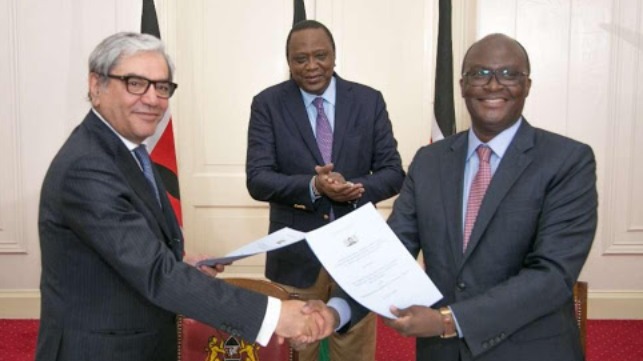Revival of Kenya’s National Shipping Line Encounters Challenges

Plans to revive the Kenya National Shipping Line (KNSL) are in limbo due to concerns that the company cannot compete and mounting opposition to its proposed operation of the second container terminal (CT2) at the Port of Mombasa.
Two years ago, the Kenyan government unveiled plans to revive KNSL, with hopes that it would have the ability to contribute $3 billion annually to the economy and create 6,000 jobs. However, the process has gone cold over concerns that history would repeat itself by pegging the revival on slot chartering.
“KNSL revival is work in progress. We don’t have a timeline when it will be complete,” said Nancy Karigithu, Principal Secretary, Shipping and Maritime.
The government signed a memorandum of understanding with the Mediterranean Shipping Company (MSC) in 2018 aimed at building a partnership in which KNSL would be allocated slots for cargo, thus exposing it to the global shipping environment. The government also amended the Merchant Shipping Act 2019 to facilitate KNSL and MSC to jointly run Port of Mombasa’s CT2. MSC controls a 20 percent shareholding in KNSL.
Shipping industry stakeholders believe that the effort to revive KNSL amounts to a stillbirth because the government is repeating the same mistakes that led to its collapse. KNSL was established in 1987 as the national carrier for seaborne trade, but years of mismanagement and accumulation of massive debts led to its collapse.
“It is very difficult for KNSL to compete without its own vessels and containers. Chartering slots will only increase the cost of doing business,” said Gilbert Langat, Shippers Council of Eastern Africa CEO.
He added that although the revival policy was premised on ensuring that all government cargo is handled by KNSL, the government cannot guarantee value for money because other shipping lines can offer better rates and connectivity globally.
The government was also hoping to promote KNSL for export cargoes, mainly agricultural produce like tea and coffee, but the volumes may be too small to make business sense.
“Shipping is not an easy business because it requires markets, resources and networks in order to operate efficiently. KNSL will find it hard to operate in this kind of environment,” noted Langat.

that matters most
Get the latest maritime news delivered to your inbox daily.
Plans by the government to give KNSL the exclusive rights to operate CT2 have also been met with stiff opposition by shippers and port employees, with the Dock Workers Union calling it a backdoor privatization of the terminal.
Phase one of CT2 has increased Mombasa Port’s annual capacity by 550,000 TEU, and completion of the second phase this year will result in an additional capacity of 450,000 TEU, bringing the total capacity to one million TEUs.
